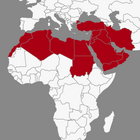Social Contracts in the MENA – Drivers of Change
Event Type
Workshop
Location / Date
Bonn, 24.08.2022
until
26.08.2022
German Institute of Development and Sustainability (IDOS)
Aspirations in the Middle East and North Africa (MENA) to improve state-society relations predate the Arab uprisings in 2010-11 (e.g. Algeria 1991-2002, Iran 1998). However, developments after 2011 fell well short of meeting these aspirations in most MENA countries.
Considerable bodies of literature now use the social contract ‘lens’ for framing state-society-relations and its transformation. These include both, scholarly texts (Heydemann 2007, Regeni/Auktor 2017, McCandless 2018,) and development policy-guiding publications (World Bank 2004, OECD 2011, UNDP 2016). Loewe, Zintl and Houdret (2021) define them as the “entirety of explicit or implicit agreements between all relevant societal groups and the sovereign (i.e. the government or any other actor in power), defining their rights and obligations towards each other”. Typically, governments deliver protection (collective, individual and legal security), provision (social and economic benefits) and participation (in political decision-making). Citizens in turn accept the rule of the government and pay taxes.
Social contracts are not static. They are regularly renegotiated but most often, the contracting parties have either no reason to change their position or no leverage to see through such a change, and therefore reconfirm the existing contracts with just limited changes. But every now and then, long periods of path dependencies end abruptly and sometimes unexpectedly with a much more substantial change in the social contract. Apparently, this can be due to changes in the framework conditions (economic or health shock) or the intervention of powerful foreign actors (e.g. invasion or economic sanction). However, there is not yet much systematic research on the questions of which factors can bring about such change, and what potential less powerful actors have for driving a change in the social contract (For further information on the concept).
The German Institute of Development and Sustainability (IDOS) therefore held a workshop on 24-26 August 2022 in Bonn, Germany, to discuss methodological avenues – both qualitative and quantitative – and empirical insights to:
- identify drivers of contemporary transformations of social contracts in the MENA-region,
- assess the drivers’ respective contribution to change – both in ‘objective’ terms and in the perception of the social contract stakeholders,
- gauge the options of less powerful actors (e.g. vulnerable groups in society) to bring about change in social contracts.
Empirical contributions focused either on country-to-country or region-to-region comparisons (MENA included), on specific policy fields, or on the trajectory of specific social contracts over time.
Hinweis
Während unserer Veranstaltungen werden z.T. Foto- und/oder Filmaufnahmen gemacht, die für Zwecke der Veranstaltungsberichterstattung und allgemeinen Öffentlichkeitsarbeit in verschiedenen Medien veröffentlicht werden. Sie haben jederzeit das Recht, die Foto- oder Videograf*innen darauf hinzuweisen, dass Sie nicht aufgenommen werden möchten. / During our events photos and/or videos may be taken which may be published in various media for the purposes of documentation and PR activities. You have the right at any time to point out to the photographer or videographer that you do not want to be photographed or filmed.
Event information
Date24.08.2022 until 26.08.2022
LocationBonn
Contact

Prof. Dr. Markus Loewe
Senior Researcher, Research Programme “Transformation of Economic and Social Systems”
E-mail Markus.Loewe@idos-research.de
Phone +49 (0)228 94927-154
Highlight
1-0 Introduction to workshop 220821
1-1 Loewe et al Framework drivers
1-2 Messkoub Sustainability-Soc-Contract
1-3 Zintl Houdret digital social contract
1-4 McCandless Inclusion as a driver of change-Tunisia
1-5 Leininger Loewe et al 2022 Soco and Soco
1-6 Nazli Attitudes in the MENA and West
2-1 Madi State-labor relations in Lebanon and Tunisia
2-2 Sabry Social Contract in Post-Revolution Tunisia
2-3 Houdret Furness Morocco social contract
2-4 Rutherford Hyperauthoritarianism Egypt
2-5 Shechter Social contract in Egypt 1991-2011
3-1 Sudermann Zintl-Revanchist social contract Syria
3-2 Al-Ashmar Exit Option and the new Social Contract in Syria
3-3 Abedtalas Entrepreneurship and social contracts
3-4 Abd Rabou Social contract in Libya
3-5 Benstead et al Social Contract in Southern Somalia
4-3 Anas Governance and social contract
4-4 Klinger Social contract in Oman
Ms 1-1 Loewe et al Framework drivers
Ms 1-2 Messkoub Social Contract-Sustainability and Social Policy-MENA
Ms 1-3 Zintl Houdret digital social contract
Ms 1-4 McCandless Inclusion as a driver of change-Tunisia
Ms 1-5 Leininger Loewe et al 2022 Soco and Soco
Ms 1-6 Bilgili Attitudes in the MENA and West
Ms 2-1 Madi State-labor relations in Lebanon and Tunisia
Ms 2-2 Sabry Social Contract in Post-Revolution Tunisia
Ms 2-3 Houdret Furness Morocco social contract
Ms 2-4 Rutherford Hyperauthoritarianism Egypt
Ms 2-5 Shechter Social contract in Egypt 1991-2011
Ms 3-1 Sudermann Zintl-Revanchist social contract Syria
Ms 3-2 Al-Ashmar Exit Option and the new Social Contract in Syria
Ms 3-3 Abedtalas-Refugees Entrepreneurships in Iraqi Kurdistan
Ms 3-4 Abd Rabou Social contract in Libya
Ms 3-5 Benstead et al Social Contract in Southern Somalia
Ms 4-1 Fathollah-Nejad Collapse of the IR of Iran s Social Contract


